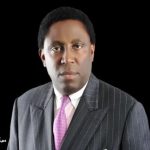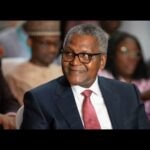Nigeria has been attracting an average of $5.96 billion in foreign exchange (FX) inflows monthly since May 2025, signalling a sharp rebound in investor confidence and a boost in external liquidity, following sweeping reforms by the Central Bank of Nigeria (CBN) and the federal government.
According to industry data, FX inflows surged by 62 percent month-on-month in May 2025 to reach $5.96 billion, one of the highest levels in recent times.
The uptick was largely driven by renewed interest from both domestic and foreign investors, reflecting growing market optimism and confidence in Nigeria’s economic policy direction.
In an investor note, analysts at Financial Derivatives Company Limited linked the surge to rising international oil prices and a raft of measures introduced by the CBN to expand FX sources and stabilise the naira.
Recent CBN interventions include the promotion of diaspora remittances through new financial products, the licensing of more International Money Transfer Operators (IMTOs), and the implementation of a willing buyer-willing seller model in the FX market.
These measures have opened up multiple FX channels for authorized dealers, boosted dollar availability for manufacturers and retail users, and improved transparency in forex transactions.
The FX inflow boost is widely attributed to the economic reforms initiated by the CBN under Governor Olayemi Cardoso, as well as fiscal policy changes by the current administration, which took office in 2023.
Together, these reforms have helped to attract more foreign capital, curb inflation, and stabilise the exchange rate.
Key reforms include the liberalisation of the FX market, the discontinuation of CBN financing of the federal deficit, the removal of fuel subsidies, and improved revenue collection systems.
These actions have been instrumental in restoring confidence in the Nigerian economy, which had been grappling with a backlog of over $7 billion in FX obligations and multiple exchange rates that previously distorted the market.
The positive outcomes of these reforms are reflected in Nigeria’s rising international reserves and enhanced access to FX through official channels.
As of the end of 2024, the net FX reserve (NFER) stood at $23.11 billion, the highest in over three years, up sharply from $3.99 billion at the close of 2023, and by comparison, the NFER was $8.19 billion in 2022 and $14.59 billion in 2021.
The NFER, a more accurate measure of FX buffers after accounting for liabilities like swaps and forwards, provides a clearer picture of Nigeria’s ability to meet immediate external obligations.
Meanwhile, gross external reserves climbed to $40.19 billion from $33.22 billion recorded in December 2023.
This increase reflects the CBN’s strategy of reducing short-term FX liabilities and restoring confidence in the FX market, including efforts to attract non-oil inflows.
Governor Cardoso, who assumed office in October 2023, has made stabilising Nigeria’s macroeconomic environment a top priority.
Under his leadership, the CBN has worked to strengthen monetary policy tools, rebuild external buffers, and remove distortions that previously hindered investment.
One of the ripple effects of improved FX liquidity is the decision by Nigerian banks to lift the long-standing moratorium on the use of naira-denominated debit cards for foreign transactions — a move made possible by rising dollar availability and a more stable market outlook.
In December 2024, Nigeria also returned to the international capital markets, further bolstering investor sentiment.
This comeback, combined with credit rating upgrades and the operationalisation of a new private refinery in a deregulated petroleum market, has positioned the country for higher value addition and stronger external earnings.
Analysts say the FX and reserve improvements are helping to build resilience against external shocks, while creating a more stable and transparent operating environment for investors, manufacturers, and international partners.
With stronger reserves, improved FX access, and increased inflows from diverse sources, Nigeria’s economy appears on firmer footing, although sustainability of these gains will depend on continued policy discipline, private sector participation, and global economic trends.
READ ALSO: Tackling impact of oil price drop on FX inflows with financial policies
WATCH TOP VIDEOS FROM NIGERIAN TRIBUNE TV
- Let’s Talk About SELF-AWARENESS
- Is Your Confidence Mistaken for Pride? Let’s talk about it
- Is Etiquette About Perfection…Or Just Not Being Rude?
- Top Psychologist Reveal 3 Signs You’re Struggling With Imposter Syndrome
- Do You Pick Up Work-Related Calls at Midnight or Never? Let’s Talk About Boundaries






